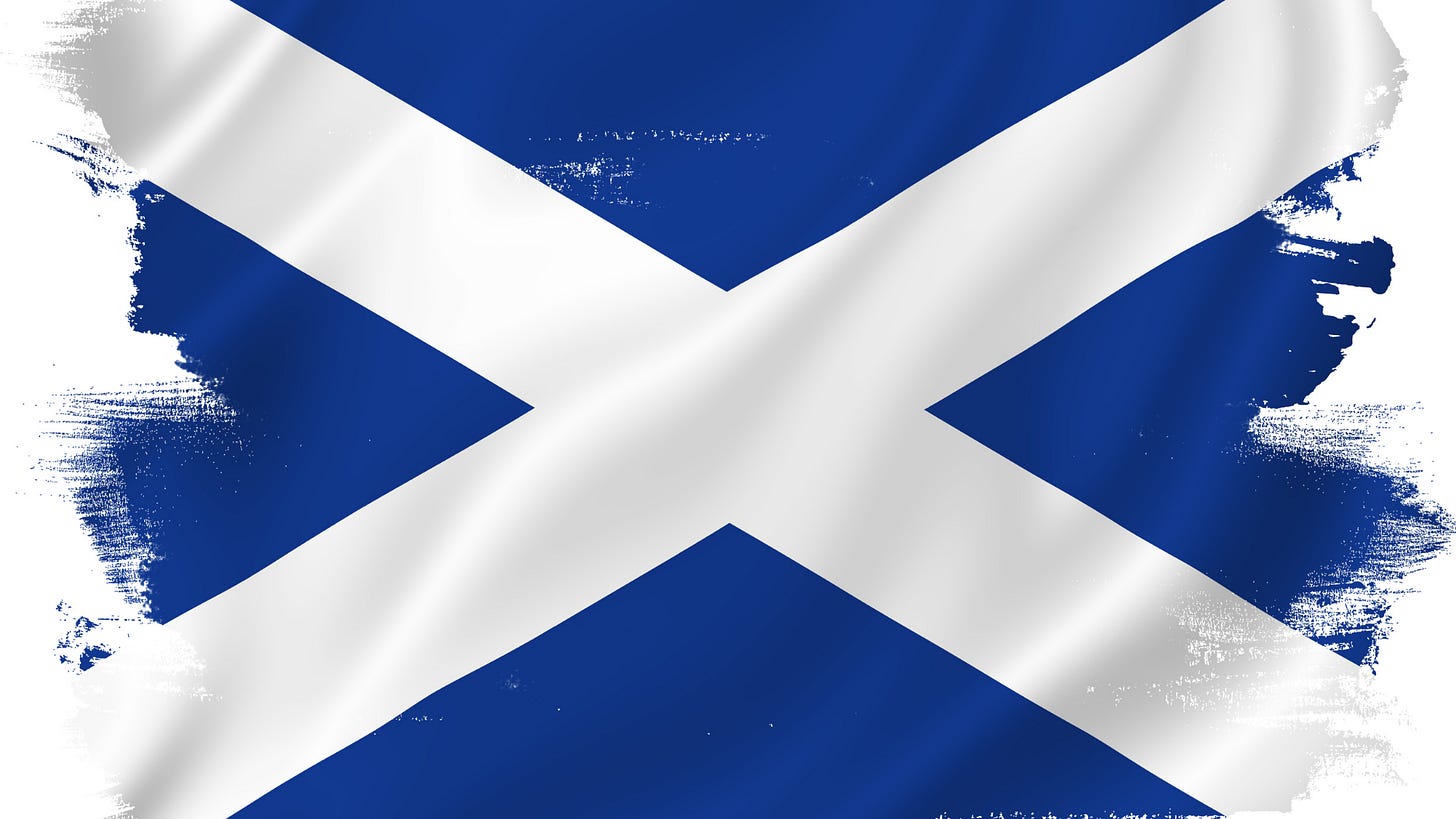Words: Scottish
Just watch, listen, and be amazed...
Let's Talk Scottish
Scotland, a country of stunning landscapes and rich history, also has a unique way of speaking English. For learners of English as a Second Language (ESL), the Scottish accent can be a little tricky at first, but it's a fascinating part of British English.
The Accent: Sounds of Scotland
One of the most distinctive features of the Scottish accent is the 'r' sound.
Unlike many other accents in England, where the 'r' is often soft or silent, in Scotland, it's often trilled or rolled.
Think of the 'r' in words like "car" or "river"—it sounds more like the 'r' in Spanish or Italian. For example, "park the car" would be "paRRk the caRR" with a noticeable roll.
Another key difference is the vowel sounds. The vowel in words like "house" and "mouth" is pronounced differently. Instead of the "ow" sound, it's often a shorter, sharper sound, similar to the "oo" in "moo." So, "house" can sound a bit like "hoose".
Vocabulary: Words You'll Hear
The Scottish vocabulary is full of words you might not find in a standard English dictionary. Here are a few common ones to get you started:
Wee: This is a very common word meaning "small" or "little." For example, "Can I have a wee bit of sugar?" or "That's a wee lassie."
Loch: A "lake." The most famous example is Loch Ness, home of the legendary monster!
Braw: A fantastic word meaning "great," "good," or "nice." If someone says "Yer doing a braw job," they mean "You're doing a great job."
Ken: This is a verb that means "to know" or "to know about." If someone asks you "D'ye ken?" they are asking "Do you know?"
Aye: This simple word means "yes." You'll hear this a lot. The opposite, "naw," means "no."
Lassie/Laddie: A "girl" and a "boy," respectively. You might hear an older person say, "Come here, lassie."
Grammar: A Few Fun Differences
Scottish English also has some interesting grammatical quirks that are good to know. One common feature is the use of the word "that" or "whit" in questions. Instead of "What do you mean?" a Scottish person might say "Whit d'ye mean?" The word "whit" is a contraction of "what it" and is a classic part of the Scottish dialect.
Another key point is the use of "dinnae" and "cannae." These are contractions for "do not" and "cannot," respectively. For example, "I dinnae ken" means "I don't know."
Getting used to these differences can be a fun challenge. The best way to learn is to listen to Scottish music, watch movies and TV shows set in Scotland, and, if you have the chance, chat with a Scottish person! Learning about a new accent and its vocabulary is not just about understanding words; it's about connecting with a culture and its people. Good luck and "Slàinte mhath!" (Cheers/Good health!) 🍻
Scottish is the hardest accent for English and American native speakers to understand. So… you are not alone!
Have a look at some of these. They are, of course, some exaggerations for comedic effect, but they are all based on the fact that Scottish is very, very unique when it comes to accent.
Scottish not only has a challenging accent but it also has its own vocabulary!
But they also have problems saying English words that other natives find easy to say!
The Accent Challenge
For this week, we have something different. We have a series of challenges for you.
Today, we want you to try speaking with a Scottish accent! It might seem tricky, but it's a great way to practice some new sounds.
Try saying this sentence:
"I thought I saw a wee mouse, but it was just a thistle."
Here are a few tips to help you:
The 'r' sound is often rolled.
The 'ou' in 'mouse' is more like the 'oo' in 'book'.
'wee' means 'little'.
Record yourself saying the sentence. We would love to listen to your attempts, so please send your recordings to us.
If you are feeling brave, post your recording up and share it with everyone! Good luck and have fun!


